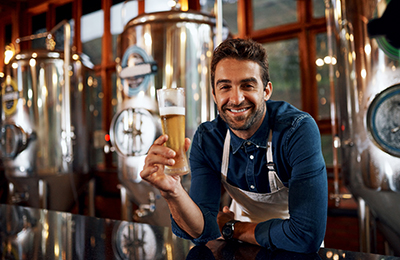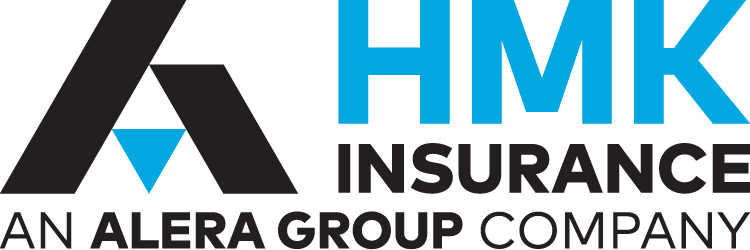 When you work closely with decision-makers in the craft beverage industry, two conclusions become readily apparent:
When you work closely with decision-makers in the craft beverage industry, two conclusions become readily apparent:
- They’re driven by passion — not only for their products, but for the people they work with and serve;
- They care deeply about running their business the right way, and that includes valuing relationships with the trusted advisers who serve them.
From an insurance professional’s standpoint, that makes operators of breweries, cideries, distilleries, meaderies and wineries terrific clients. And for the craft beverage-makers themselves, it means the things they care about — including profits — are generally well protected under a thoughtfully designed Property and Casualty Insurance program.
Yet even with multiple reputable insurance carriers offering specialized programs based on the type of beverage and means of production, establishing and maintaining customized, comprehensive coverage requires both vigilance and diligence. Vigilance by the business operator, to address all the exposures that arise in a constantly evolving industry. Diligence by the insurance agent or broker, to ensure the best available coverage at a price that makes sense for the insured business.
Consider 21st Amendment Brewery, whose rise began in the 1990s with the nascent friendship of two homebrewers. Twenty years after its founding as a San Francisco brewpub, 21st Century is ranked among the most successful craft breweries in the United States, with about 100 employees, along with a taproom and beer garden at its San Leandro, CA, production facility – all in addition to its original brewpub. Before opening the production facility in 2015, 21st Amendment’s partners had their beers canned in Cold Spring, MN. Today, the facility has a brewing capacity of 150,000-180,000 barrels, a production partnership with Brooklyn Brewery, and a sales-platform collaboration with both Brooklyn Brewery and Funkwerks, of Fort Collins, CO, which helps make 21st Amendment’s products available in more than 30 states. In addition, 21st Amendment holds periodic special events featuring live music and food trucks.
Obviously, the company’s risks, exposures and needs have increased since its humble origins — and that’s just one example of the tremendous growth and evolution the craft beverage industry has undergone over the past three decades.
Drinks and Conversation
Whatever developments your craft beverage business has experienced, whatever business diversification you’ve undertaken, it’s important that you discuss these changes with your insurance agent or broker.
Planning to allow dogs on premises at your brewery or winery? Discuss that with your insurer. According to a 2020 report in Insurance Journal, only 17 states allow dogs in outdoor patio areas, typically with restrictions. Your agent or broker should be able to help you determine whether pets are legally permissible in your state and whether allowing them at your place of operations is good for business.
Fostering the well-established relationship between beer, running and social events by sponsoring a club? Discuss it with your insurer. An informal group that meets at your establishment and reassembles for post-race refreshment might not pose a risk, but the more established your relationship with the group and activity, the more likely existence of liability issues. Your agent or broker should be able to let you know whether the insurance you have is sufficient to cover your exposures or whether there are coverage gaps you need to address.
If your agent or broker isn’t aware of applicable regulations in your state or the liability associated with hosting clubs and events — well, it’s probably time to find a new agent or broker.
Coverage Basics
Craft beverage makers face myriad risks aside from pets and thirsty runners, of course, and carriers with specialty programs tailored to the industry offer additional coverages to protect you from them. In addition to standard business insurance coverages such as General Liability, Property (building, personal and product-related), Crime and Fidelity, Business Auto, Cyber and Workers’ Compensation, craft beverage producers typically need such additional coverages as—:
- Equipment Breakdown — This extends your property policy to cover loss to real and business personal property stemming from sudden, accidental breakdown.
- Tank Leakage or Collapse — Defective equipment or user error can cause a leak or collapse that not only results in a loss of beverage stock but also causes additional property damage. This coverage protects you against those losses.
- Contamination and Adulteration — Power interruptions, equipment breakdown and more can result in expensive losses.
- Product Recall Expense — If a contamination or packaging issue forces you to pull your product off the shelves, this cover can help reduce the costs.
- Water Processing Expense — As the Brewers Association notes in its guide “Water and Wastewater: Treatment/Volume Reduction Model,” craft beverage makers have made significant strides in water consumption and wastewater disposal. Nevertheless, complications can arise that lead to breaches of water quality restrictions and costly repairs, making this coverage essential.
- Inland Marine and Ocean Marine — These protect your products while in transit on land or water.
- Business Interruption (Business Income) — Triggered by a covered loss, this pays for payroll, ongoing necessary expenses, lost net profit and extra expenses resulting from the loss.
- Supply Chain Liability — Most craft beverage makers rely to at least a limited degree on outside suppliers for some of the fresh, quality ingredients that go into their products, and even those who are totally self-sufficient in that regard are dependent on distributors of equipment or parts. For that reason, this coverage is important in the event your supplier is unable to provide the materials you need; it can help cover financial losses you incur as a result of the disruption. If the need for this coverage wasn’t apparent before the COVID-19 pandemic, it should be now, perhaps most dramatically due to an acute shortage of cans.
- Key Employee Replacement Expense — Suddenly losing a master brewer or vintner to death or disability can be debilitating to a company. This coverage can help a craft beverage maker cover the losses it incurs during the time it takes to train or hire a suitable replacement.
- State and Federal Liquor Tax Bonds — This helps businesses meet surety requirements for payment of taxes related to the sale of alcoholic beverages.
In the craft beverage industry, Liquor Liability Insurance is a must to protect yourself against a lawsuit resulting from an overserved and intoxicated patron. Most General Liability policies explicitly exclude Liquor Liability claims. Excess Liability Insurance — also known as a Commercial Umbrella — should be considered essential as well, given policy limits on underlying coverage and the social inflation that has contributed to million-dollar-plus awards in liability lawsuits. Employment Practices Liability Insurance — which covers claims such as discrimination, harassment, wrongful termination and more — also is highly recommended, especially if your business employs bar and kitchen staff.
Some coverages may be specific to the product you produce. Wineries that grow their own grapes, for example, should consider coverage for vines and trellises. Meaderies that keep their own bees for honey production have unique exposures that can be covered by Bee Insurance (yes, there is such a thing).
And, of course, if you do operate a restaurant in conjunction with your craft beverage business, there’s another full range of coverages you need to consider. You’ll want to work with an insurance agent or broker who knows the ins and outs of the restaurant industry as well.
In addition to customizing your insurance program to protect your business and your craft beverage team, the right agent or broker will assist you with risk management programs and services that reduce claims and mitigate costs.
A Quality-Control Solution Suited to Your Industry
As someone for whom your team members and quality control of your products are of the utmost importance, you may be interested in a benefits solution that can enhance your Total Rewards offerings to your employees while helping you to control how much you spend. Captive Insurance programs are often associated with larger companies, but a group captive can be a valuable, cost-effective solution for smaller organizations as well.
Whatever the size of your business, Alera Group’s Sept. 16 webinar, “Using Captives to Control Your Benefits Spend: Optimizing Your Health Plans,” will provide an informative overview of how a captive solution can provide you with the quality and control you aim to achieve. To learn how leveraging a group captive to help reduce premiums and provide a more predictable benefits experience, attend the webinar and hear from our captives experts. Sign up using the link below.
About the Author
Todd Collins
Commercial Insurance Consultant
HMK Insurance, an Alera Group Company
As a Commercial Insurance Consultant with HMK Insurance, an Alera Group Company, Todd Collins also heads the firm’s Mid-Atlantic Craft Beverage Insurance program, working with breweries, cideries, distilleries, meaderies and wineries. He joined HMK in 2013, after serving the City of Allentown, PA, as Business Development Manager in the Department of Community and Economic Development. He also provides insurance and risk management services for food manufacturers, hospitality establishments, real estate developers and managers, and nonprofit entities.
Contact information:





